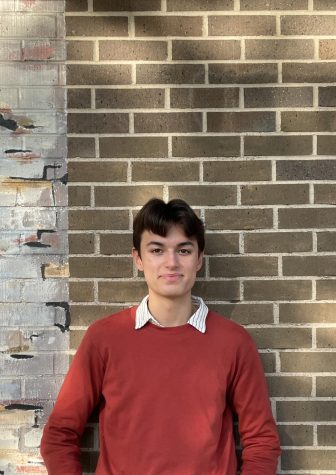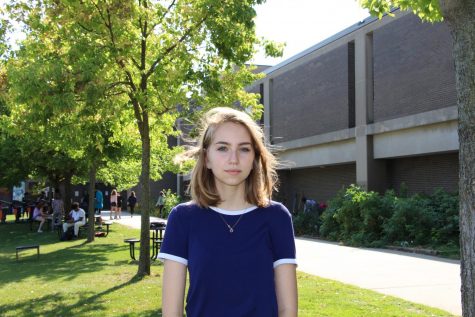Soundwaves of South High: new podcast competition has students excited to share their voice

Above is a picture of a microphone commonly used in the creation of podcasts. Many student competitors will be entering their work to the NPR podcast competition to win the grand prize of their work aired on NPR. “I would freak out if my students got to be on National Public Radio for something that we taught them in this class,” said South english teacher Delainia Haug
January 8, 2019
National Public Radio, or NPR, is hosting a competition where students can create their own podcast and then with the help of a teacher, submit it to the competition. It can be about anything from a social justice issue to a wild conspiracy theory, but all are welcome in this first ever competition.
The NPR podcast competition is for high school students who have created a short podcast that can be about anything, as long as they have turned 18 before the time they submit the entry and a teacher is willing to submit it for them. The competition’s entry window opens on January 1st, 2019 and closes on March 31, 2019.
Delainia Haug and Laura Lanik’s VOICES class recently worked on a unit where students partnered up and created a podcast about a social justice topic. The pair didn’t know that the contest existed until after the unit was over. “We didn’t even know that there was a contest, but then we got an email saying that there was…and we were like ‘sweet!’” said Haug.
Haug and Lanik felt as if their students made good podcasts and were excited to announce the competition to the class. “I don’t know how many students [in the nation] will submit podcasts but I think that some of our [projects] are really good and I am really pushing our students to submit to it,” said Haug.
The pair believes that VOICES gives you many opportunities that most classes do not give. “VOICES is always open for seniors who want to take the class next year and one of the reasons students can make podcasts in the class is because the students get a pass to leave the building to do their work during class time, during the school day, as well as outside of class, you get a lot of freedom,” said Lanik.
One partnership knows that they will be submitting their podcast; seniors Quinn Williams and Eoin Irmiter, whose project is about how social media affects the brain. “We chose the topic because it was something that was relevant to us because we’re teens and we use social media a ton…we see it all around us at school so we felt as if it was important, especially because we were sharing it to our peers,” said Irmiter.
Williams and Irmiter looked for sources that were experts in the fields of human development. “We had an interview with the psychologist and we talked about the more emotional aspects of social media and how it can affect your brain waves,” said Williams.
The duo also got an interview with a professor on human development and covered things throughout the podcast like child development, the positives and negatives of social media, and other aspects that deal with how social media affects our brains.
However, many students were hesitant to submit because of a setback. “One thing that they have to do to submit is go back and re-edit their podcasts to take the music out, which isn’t too big of a deal, but some of the students don’t want to do it because they like their podcasts the way it is and music was something that they spent a lot of time on,” said Haug. “They felt as if it took away some of the personality and flavor from their work.”
As Irmiter explains; “NPR doesn’t let you use music because it could be copyrighted.”
However, Williams and Irmiter did not take it as something to prevent them from wanting to enter, they took it as a motivational challenge. “Me and [Irmiter] thought it would be a good challenge to try to make our podcast still interesting and easy to follow without the music and special effects that are already in it,” said Williams.
Williams said she felt as if the pair’s podcast had a chance at winning the grand prize; which is having their work played on NPR. “Our podcast was definitely pretty good so hopefully it will still be as good without the music in it,” she said.
Overall, Haug was excited for how the competition would fold out. “Hopefully we have a winner, I would freak out if my students got to be on National Public Radio for something that we taught them in this class.”






